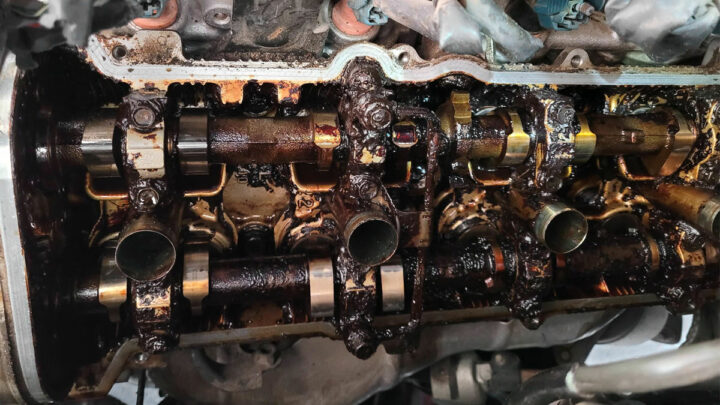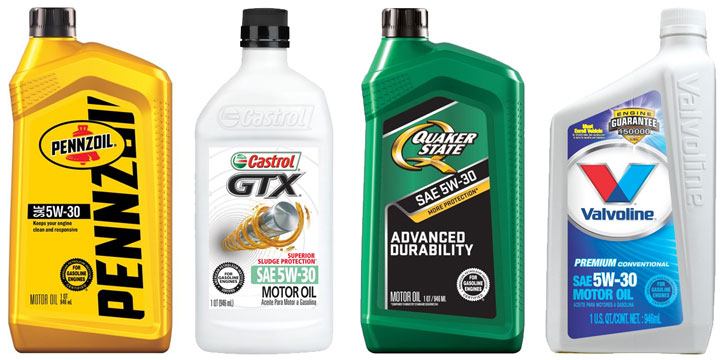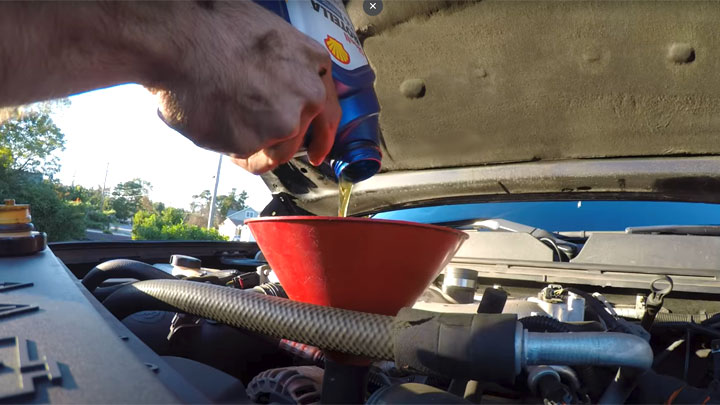Does Oil In an Engine Go Bad If You Don’t Drive Enough?
Many often question whether or not motor oil actually expires, if left within the engine of a seldomly driven vehicle for lengthy periods of time.
The short answer to this question is “yes”, motor oil can indeed go bad if left to set for unspecified lengths of time. However, there are many variables that come into play when determining just how long motor oil lasts.
Read on to learn more about the longevity of unused motor oil and how oil reacts when your driving habits change.

Does Oil Go Bad In a Vehicle That’s Not Regularly Driven?
In most cases, the number of miles driven within a given period of time serves as the defining factor in deciding when an oil change is required. However, in rare instances, such as when a vehicle is in storage, or when a vehicle is driven on weekends only, motor oil can actually begin to degrade from age.
After an extended period, motor oil can begin to break down within an engine’s crankcase, ultimately proving less capable of protecting an engine’s numerous moving parts. Continued use of motor oil in this state can result in premature engine wear and internal fatigue.
How Long Can Oil Last In the Engine of an Unused Vehicle?
As already mentioned, motor oil can indeed break down in the sump of an unused vehicle’s engine. The question now becomes exactly how long it takes for this breakdown to occur.
In truth, this differs from one particular type of engine oil to the next. More specifically, synthetic motor oils are known to exhibit greater longevity than oils of conventional makeup.
Generally speaking, conventional motor oil should be discarded if it has remained in an engine for more than three years.
On the other hand, synthetic motor oil should be discarded if it’s remained in an engine for a period of 5+ years.
Additionally, an engine’s oil should always be changed before use, if no certainty exists regarding the age of the oil in question.

How Oil Quality Changes Over Time
There is no doubt that engine oil degrades with time. However, many do not understand exactly how this process takes place.
One of the most significant changes that occurs to motor oils of every type as they age is the breakdown of essential additives that stabilize refined petroleum products. Without these additives, motor oil is less likely to maintain its lubricity over time.
Additionally, motor oil oxidizes as it ages, thereby negatively impacting overall viscosity. When an oil’s viscosity degrades, it often thins or thickens in an unpredictable manner, under various weather conditions. This, in turn, can lead to accelerated engine wear under certain situational circumstances.
In short, lubricating engine oil becomes less adept at serving the purpose for which it was designed, with the passage of time. When motor oil is unable to lubricate an engine’s internal components, it is of little value, and can actually prove harmful to an engine’s overall health.
Should You Change Your Oil Even When Your Car Isn’t Driven?

The answer to this is dependent upon how long the vehicle in question has been sitting.
If a vehicle has only been sitting for a year or less, and the oil within its engine was changed shortly before being stored, issues of any type are unlikely to be encountered. However, if this vehicle has been sitting for 3-4 years, an oil change is likely a worthy consideration.
In any event, an engine’s motor oil should be changed if you’re uncertain how long the oil has been in there. This could be your own vehicle or a used vehicle you recently purchased from a private party. This serves as a precautionary matter, preventing an engine from incurring unnecessary wear and tear at the hands of potentially degraded engine oil.
Therefore, the cost and time of an oil change under these circumstances could easily be seen as a justifiable expense.
Can an Opened Container of Motor Oil Eventually Go Bad?
Yes, an opened container of motor oil can, and will, go bad over time. Opened containers of motor oil should be treated much like oil that has sat unused in an engine’s block, unused, for extensive periods of time.
Opened containers of conventional motor oil should be discarded after 3 years, while opened containers of synthetic motor oil should be thrown away after 5 years.
See Also: Do Auto Parts Stores Take Used Motor Oil?
Does Unopened Engine Oil Have an Expiration Date?

While motor oil does not typically come stamped with individual expiration dates, most manufacturers do include production dates on their caps.
In certain cases, these production dates are coded, and require a certain amount of deciphering on a manufacturer-specific basis. These production dates can be quite helpful in determining the age of engine oil that has been kept in storage.
Under most circumstances, unopened motor oil of the conventional variety has a shelf life of 4-5 years. Meanwhile, synthetic motor oil typically exhibits a shelf life of 6-7 years. Outside of these shelf lives, the integrity of any engine-specific lubricant becomes questionable at best.
Is It OK to Use “Expired” Engine Oil?
In truth, you may likely be taking unnecessary risks when choosing to use motor oil that has exceeded the storage or shelf lives mentioned above. Oil that has begun to break, or that has experienced additive degradation is not equipped to protect a vehicle’s engine as it otherwise should, thereby posing potential hazards.
Despite the fact that the price of engine oil continues to increase each year, the cost of replacing questionable motor oil is going to be far less than that of repairing a damaged engine.
Additionally, it’s possible that damage done from the use of degraded motor oil might not rear its ugly head until several years down the road when premature engine wear becomes evident.

Signs That Your Oil Is Bad
There are several signs that would indicate that motor oil is no longer viable or safe for use. The first of these signs would be a lapsed “use-by” date on the container in which the oil in question was stored in. Likewise, the same could be said for oil that is 5 years or more beyond its specified production date.
Other signs of degradation in motor oil include visually obvious breakdown and/or separation. Additionally, degraded engine oil can appear to gel, can become discolored, or can appear as if it is fouled with sediment. Oil that exhibits any of these underlying conditions should be discarded at once.
- P0480 Code (Symptoms, Causes, and How to Fix) - Apr 19, 2024
- Car Temperature Gauge Stopped Working? (Here’s Why) - Apr 15, 2024
- Ignition Coil vs Coil Pack (What’s the Difference?) - Apr 8, 2024
